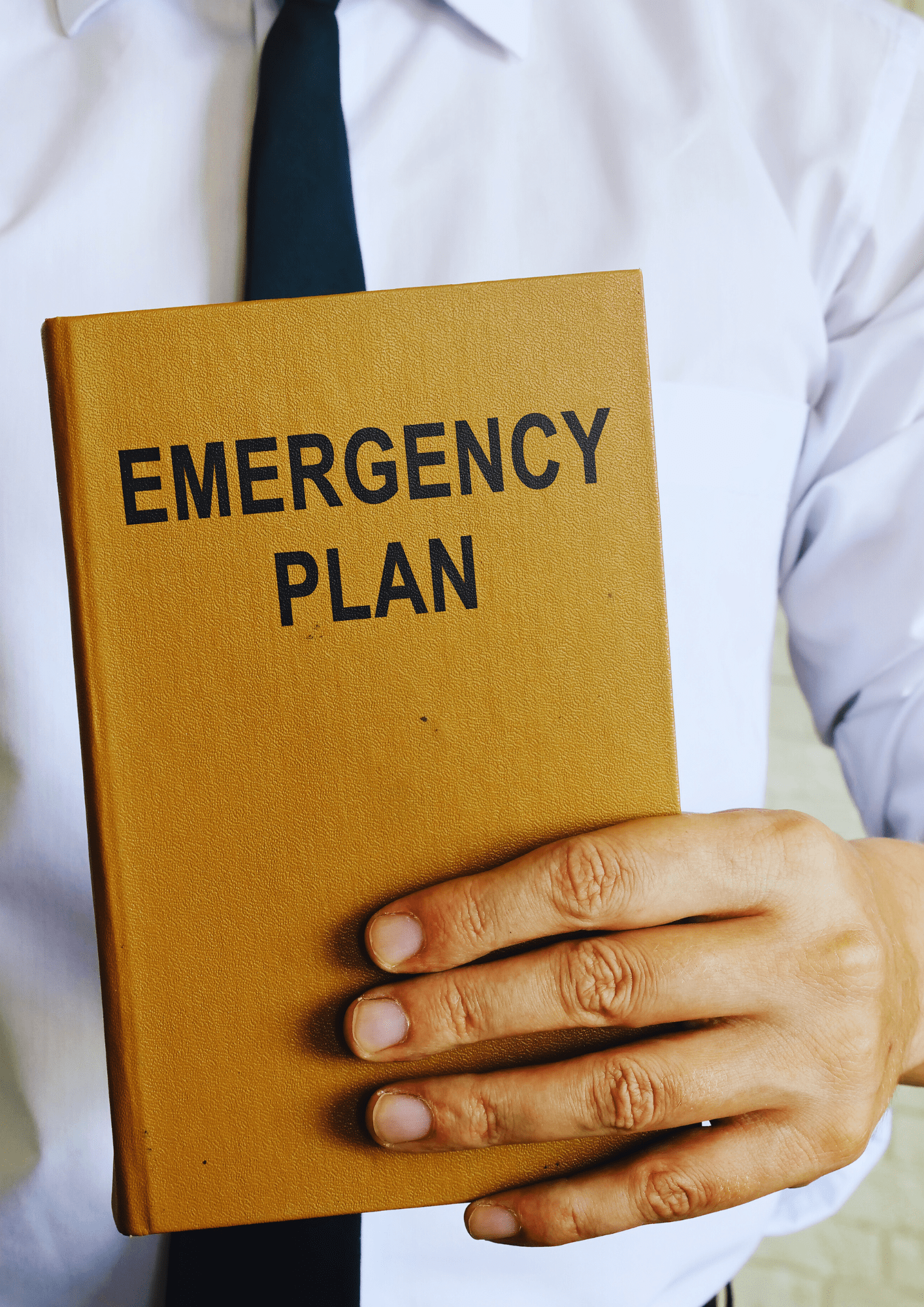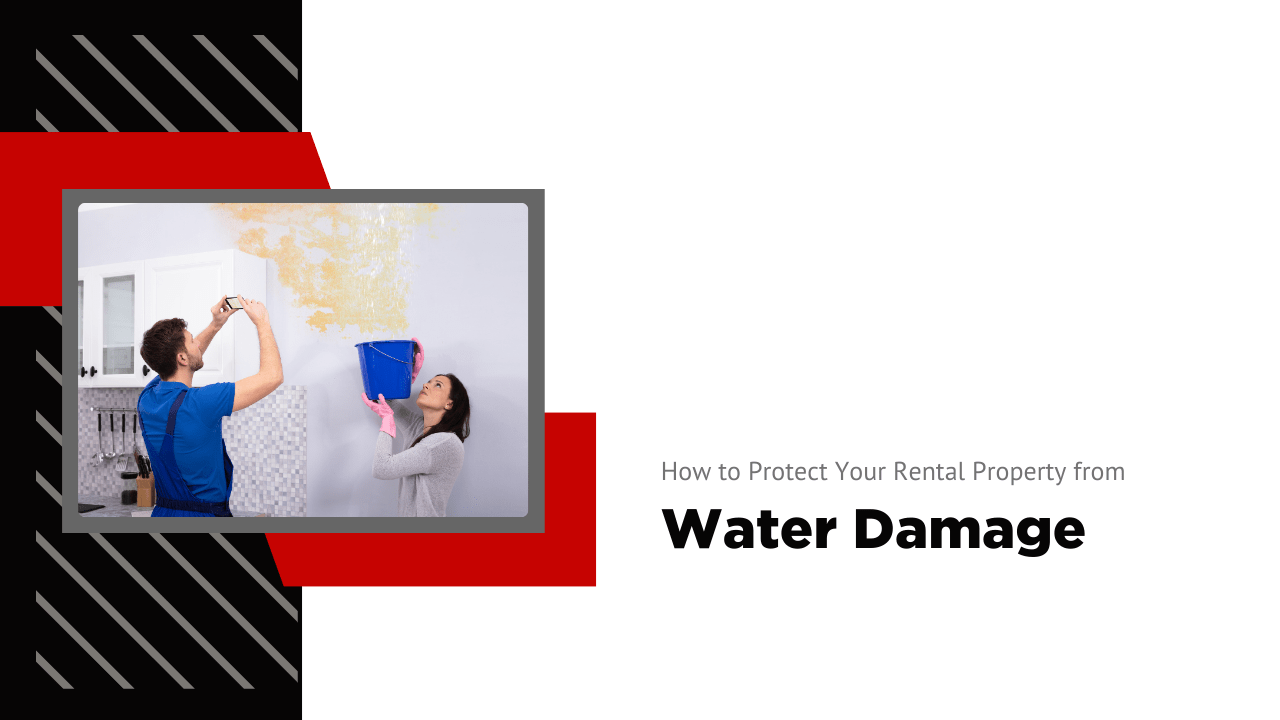Are you worried about water potentially damaging your rental property?
It’s a valid concern. In Virginia Beach and around the Hampton Roads area, there’s always a risk of tropic rains, storm damage, and even hurricanes. But sometimes, the worst threats are coming from inside the house.
Let’s take a look at how you should protect your rental property from water damage.
Quick Overview:
|
Understanding the Water Threats in Virginia
Where does water damage come from when it occurs at your rental property? Rental properties in our market are particularly vulnerable due to:
Storm surge and tidal flooding from hurricanes and nor’easters
Heavy rainfall and poor drainage common during spring and summer storms
High water tables, especially near wetlands and in low-lying neighborhoods
Plumbing issues, including burst pipes or clogged lines
Appliance failures, like leaking washing machines or hot water heaters
Humidity-driven mold, which thrives in poorly ventilated areas
You can’t stop the rain or the tides, but with the right preventive measures, you can make your property far more resilient to water-related damage.
Install and Maintain Proper Drainage Systems
One of the best lines of defense against external water is a reliable drainage system. If water pools around the foundation or seeps into the crawl space, you’re at risk of long-term structural and mold issues. Here are a few steps you can take to ensure your rental investments are safe:
Gutters and downspouts
Ensure gutters are cleaned regularly and downspouts direct water at least 6 feet away from the foundation.
French drains or swales
These are excellent for channeling water away from low-lying parts of your property.
Grading
The soil around your home should slope away from the foundation. If it slopes inward, water will collect at the base and eventually leak in.
Schedule seasonal inspections, especially in spring and fall, to clear debris and check for clogs in drains, gutters, and catch basins.
If your rental has a basement or crawl space, a sump pump is a smart investment, especially in flood-prone zones along the coast. Choose a sump pump with a battery or water-powered back-up system in case of power outages during storms. Install water alarms near the sump pump to notify you or your property manager when water starts collecting, and schedule a professional test your sump pump annually.
Fortify Against Flooding with Barriers and Seals
Flood protection is crucial, especially during hurricane season. In our area, FEMA flood zones are common, and many rental properties sit just a few feet above sea level. Consider proactive measures such as flood vents, which are in foundation walls and help relieve pressure during flooding. This can reduce your structural damage.
You’ll also want waterproof coatings and sealants on floors and walls, especially in basements. Outside, get flood barriers or sandbags when you know a rain event may be imminent.
If your property is in a designated flood zone, it’s worth hiring a professional to assess flood-proofing options, which may include elevating critical utilities above base flood elevation. We can make some referrals and recommendations if you’re interested.
Protect Against Storm Damage with Roofing and Exterior Maintenance
Strong storms can quickly lead to water entering the home through damaged roofs, cracked siding, or broken seals around windows and doors. As property managers, we have a maintenance checklist to prevent storm damage, and it includes:
Annual roof inspections and additional inspections after every major storm. We’re looking for missing or damaged shingles.
Inspecting the flashing to ensure it’s intact, especially around chimneys, vents, and any skylights.
Replacing caulk and weatherstripping around windows and doors.
Looking for cracks and warping, especially on siding and along exterior walls.
Make your upgrades strategically. If your property is due for a new roof, consider using materials rated for high wind resistance and heavy rain, which is especially important in hurricane-prone areas.
Prevent Interior Leaks with Regular Plumbing Inspections
Internal water damage often stems from hidden plumbing issues like leaky pipes, burst lines, or worn-out seals. These problems can go unnoticed for weeks and result in expensive repairs and major tenant disruption. We recommend that you schedule annual plumbing inspections with a licensed plumber who can spot potential problems before they become costly emergencies. Replace aging or corroded pipes when they’re identified. Galvanized steel is common in older Virginia homes.
Any time you’re in the property, check under sinks, behind toilets, and around appliances for any early warning signs of water, stains, or leaks. There are leak detection devices available that can be placed under sinks and appliances to send you an alert.
Address HVAC and Appliance Risks
Water heaters, washing machines, and air conditioning units can all be sources of leaks or condensation buildup if they’re not properly maintained. Here’s what preventative maintenance looks like:
Replace water heater anode rods regularly to prevent tank corrosion and failure.
Use stainless steel braided hoses for washers and dishwashers. They’re less prone to bursting.
Make sure your HVAC system is draining properly. Clogged condensate lines are a common source of water damage and mold.
Clear and inspect the drip pans and vents regularly.
Consider upgrading older appliances with energy-efficient models that offer built-in leak detection and automatic shut-off features.
Combat Mold with Ventilation and Dehumidifiers
The high humidity in coastal Virginia makes mold growth a constant threat, especially in attics, crawl spaces, basements, and bathrooms. You can prevent this in your rental property by installing ventilation fans in kitchens and bathrooms. Use vapor barriers in crawl spaces to prevent moisture buildup and conduct mold inspections when you can.
Tenants should be expected to help you prevent mold from water intrusion. Not only does it damage your property, it can also impact health. Encourage them to use dehumidifiers and fans.
Your tenants are your first line of defense when it comes to spotting water issues early. Make sure they know what to look for and how to report concerns. You can create a simple guide or checklist that includes reporting:
Unusual stains on ceilings, walls, or floors
Musty odors (a sign of hidden mold or mildew)
Slow drains or frequent toilet backups
Damp carpets or warped flooring
Encourage prompt communication, and offer clear instructions on how to submit maintenance requests, especially in emergencies.
Get the Right Insurance and Review Your Policy
Even with the best prevention strategies, water damage can still occur. And when it does, you need to make sure you have the right insurance.
Flood insurance is typically not included in standard landlord policies. If your property is near the water or in a FEMA flood zone, a separate policy is essential. Make sure your landlord insurance covers water-related events such as sewer backup, burst pipes, or appliance leaks.
Make sure you understand any deductibles and exclusions in your policy. Many policies have separate deductibles for named storms or flood events.
We always encourage renter’s insurance for tenants. This is inexpensive, and it protects their belongings in case of water damage. You can include it as part of a Resident Benefits Package, too.
Create an Emergency Response Plan for Water Issues
 Preparedness makes all the difference in a crisis. Having a plan in place will help minimize the impact of water damage and protect your tenants. Such a plan should include contact information for emergency plumbers, water mitigation specialists, and your property manager. Tenants should know how to find the shut-off valves for the main water lines and for the appliances, toilets, etc.
Preparedness makes all the difference in a crisis. Having a plan in place will help minimize the impact of water damage and protect your tenants. Such a plan should include contact information for emergency plumbers, water mitigation specialists, and your property manager. Tenants should know how to find the shut-off valves for the main water lines and for the appliances, toilets, etc.
Keep your insurance claim procedures close by, and begin your own inspection of the property as soon as it is safe to do so.
By being proactive instead of reactive, rental property owners stand a good shot at protecting themselves, their tenants, and their investment properties if water becomes a problem at or in the home.
We like to remind the owners and tenants we work with that the cost of prevention is always far less than the cost of repair.
If you own rental property on the Virginia coast and or the surrounding areas and you’re not yet working with a property manager, we’d like to partner with you to protect your property and increase your earnings. When it comes to water damage risk, we’ll evaluate where you stand and where you might be able to make some important improvements.
We invite you to contact us at Doud Realty Services, Inc. We provide expert property management in Norfolk, Portsmouth, Hampton Roads, as well as surrounding areas such as Virginia Beach, Suffolk, Chesapeake, and Newport News.


